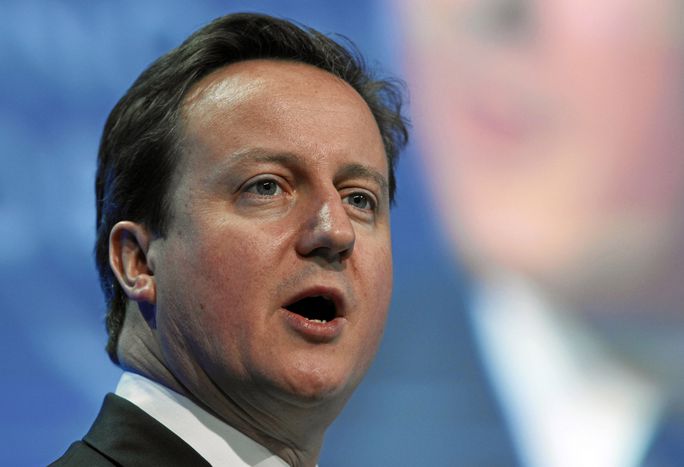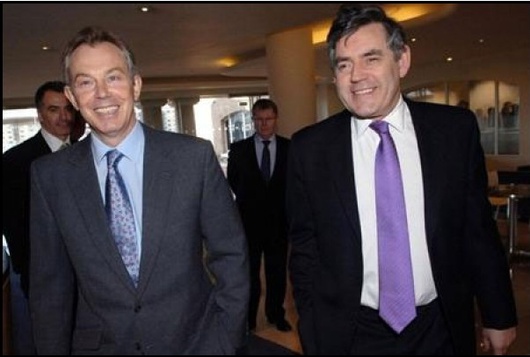
How to lose friends and alienate people, or Cameron’s EU policy
Published on
Watching David Cameron in Europe is a bit like watching a kid make a stain on his shirt and rub it, making it bigger and bigger. The British prime minister’s diplomacy has gone from bad to worse in recent weeks and the disillusioning performance in the Juncker episode means that Cameron has struck out in Europe.
Less than a month ago, Cameron was pictured in a boat with his colleagues Merkel, Rutte and Reinfeldt but soon after that he was left rowing against the current by himself. European leaders have had quite enough of their British counterpart and refuse to be bullied into making decisions. As it turns out empty threats and arrogance are not the best tactics for reaching successful outcomes in diplomacy.
Cameron already shot himself in the foot five years before he became prime minister of the United Kingdom. Having won the Tory leadership, he promised the Eurosceptics within his party that the Conservatives would leave the centre-right European People’s Party – European Democrats group in the European Parliament. This decision bit him in the arse nine years later (karma?), as the Tories could have vetoed Juncker if they had still been part of what is now called the EPP.
 But the first serious blow to his EU policy credentials came in January 2013 when Cameron proposed the EU referendum bill. He considers himself ‘Direct Democracy Dave’, but it is an open secret that the primary purpose of this proposal was to appease Tory backbenchers.
But the first serious blow to his EU policy credentials came in January 2013 when Cameron proposed the EU referendum bill. He considers himself ‘Direct Democracy Dave’, but it is an open secret that the primary purpose of this proposal was to appease Tory backbenchers.
Polish Minister of Foreign Affairs Radosław Sikorski recently noted, full and frank, that Cameron has repeatedly demonstrated his incompetence in European affairs: “He does not get it, he believes in the stupid propaganda, he stupidly tries to play the system.” The British leader should have tried to convince people as opposed to feeding scraps to the sceptics.
Predictably, the hardliners did not prove to be easily appeased or as Scottish first minister Alex Salmond poetically commented: “You can never out swivel-eye the swivel-eyed.” It is worth remembering that Cameron said ‘no’ to an in/out referendum on EU membership in 2011 and he should have held this position when Eurosceptics called for a British exit. Instead, he chose to dance to the tune of a minority within his own party.
Going after the few that he considers his own instead of protecting the interests of the many is, however, characteristic for his performance as prime minister. It is why the NHS had to be destroyed to fill the pockets of his supporters and accomplices like Baroness Bottomley who, no doubt completely impartially, voted on the Health and Social Care Bill despite financial links to three health care companies.
Cameron will now have to hold a referendum he never wanted in the first place in case he is re-elected in 2015. It also proved to his European colleagues that he is not a team player and not committed to work towards a better functioning Union; he is only after saving his own skin. Strike one.
 More recently, Cameron decided to fiercely oppose the appointment of Jean-Claude Juncker as European Commission President. “Sometimes you have to lose a battle to win a war,” the head of the British government stated shortly after Juncker’s nomination. Maybe so, but a commander worth his salt would pick his battles more carefully. The Commission Presidency is a high profile position, but not something for which to burn your boats.
More recently, Cameron decided to fiercely oppose the appointment of Jean-Claude Juncker as European Commission President. “Sometimes you have to lose a battle to win a war,” the head of the British government stated shortly after Juncker’s nomination. Maybe so, but a commander worth his salt would pick his battles more carefully. The Commission Presidency is a high profile position, but not something for which to burn your boats.
Moreover, the Godfather of Luxembourg bank secrecy would not have been appointed if Cameron had had the diplomatic shrewdness of his predecessors Blair and Brown. The former Labour leaders skilfully and successfully blocked Guy Verhofstadt and Jean Lemierre for key positions in politics and finance in the past.
When Cameron was met with resistance, he started issuing empty threats saying “he would no longer be able to guarantee that Britain would remain a member of the EU if European leaders elected Juncker”. He appears to have forgotten that he is in no position to threaten anyone.
First, he needs to be re-elected before he can even hold a referendum on EU membership. Second, the way a referendum usually works is that you let the people decide and in most cases the outcome is not pre-determined. In other words, Cameron cannot guarantee anything about anything.
The Tory leader’s EU policy and diplomacy skills have fallen short on every level. Before the Juncker fiasco, he lacked leverage for his renegotiation agenda, but his obstinate attempts to block the Luxembourgian have made any remaining goodwill disappear.
 The tragedy is that Cameron did not stand alone on the Juncker issue, at first. The former president of the Eurogroup was nobody’s favourite as even political heavyweights of his own EPP family only offered him lukewarm support. Yet, by launching a series of senseless personal attacks on ‘Mr. Euro’, rants about the process, and threats of a British exit, he managed to lose friends and alienate people in a matter of weeks. Strike two.
The tragedy is that Cameron did not stand alone on the Juncker issue, at first. The former president of the Eurogroup was nobody’s favourite as even political heavyweights of his own EPP family only offered him lukewarm support. Yet, by launching a series of senseless personal attacks on ‘Mr. Euro’, rants about the process, and threats of a British exit, he managed to lose friends and alienate people in a matter of weeks. Strike two.
Despite all this, Cameron’s position was still recoverable if only he showed a little humiliation in his defeat. But the press conference following Juncker’s nomination had no sign of that: “I’ve told EU leaders they could live to regret the new process for choosing the Commission President.”
This self-righteous attitude dashed the last bit of hope he may have had for reconciliation with his European peers, who are now more likely to escort him to the exit than acquiesce to his requests. Strike three, you’re out, Cameron.



